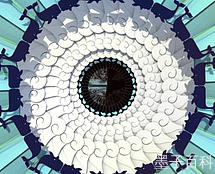
Mao Anying, the eldest son of Mao Zedong and Yang Kaihui, was a prominent figure in Chinese history. Born in 1950, he played a significant role in the Chinese Communist Revolution alongside his father. Unfortunately, Mao Anying’s life was tragically cut short when he died in the Korean War in 1953.
Mao Anying’s untimely death at the young age of 23 resonated deeply with the Chinese people. He was regarded as a symbol of sacrifice and loyalty to the Communist cause. Mao Anying’s legacy lives on through the many tributes and memorials dedicated to him, serving as a reminder of his dedication to his country and father.
Though known for his active participation in revolutionary activities, Mao Anying was also a family-oriented individual. He shared a close bond with his father and had a strong sense of responsibility towards his siblings. His death was not only a loss to China’s revolution but also a personal tragedy for Mao Zedong.
Mao Anying’s story has been depicted in various mediums of popular culture, including films and literature. These portrayals aim to commemorate his heroic contributions and evoke a sense of national pride. Through these creative works, Mao Anying’s story continues to inspire and educate future generations.














